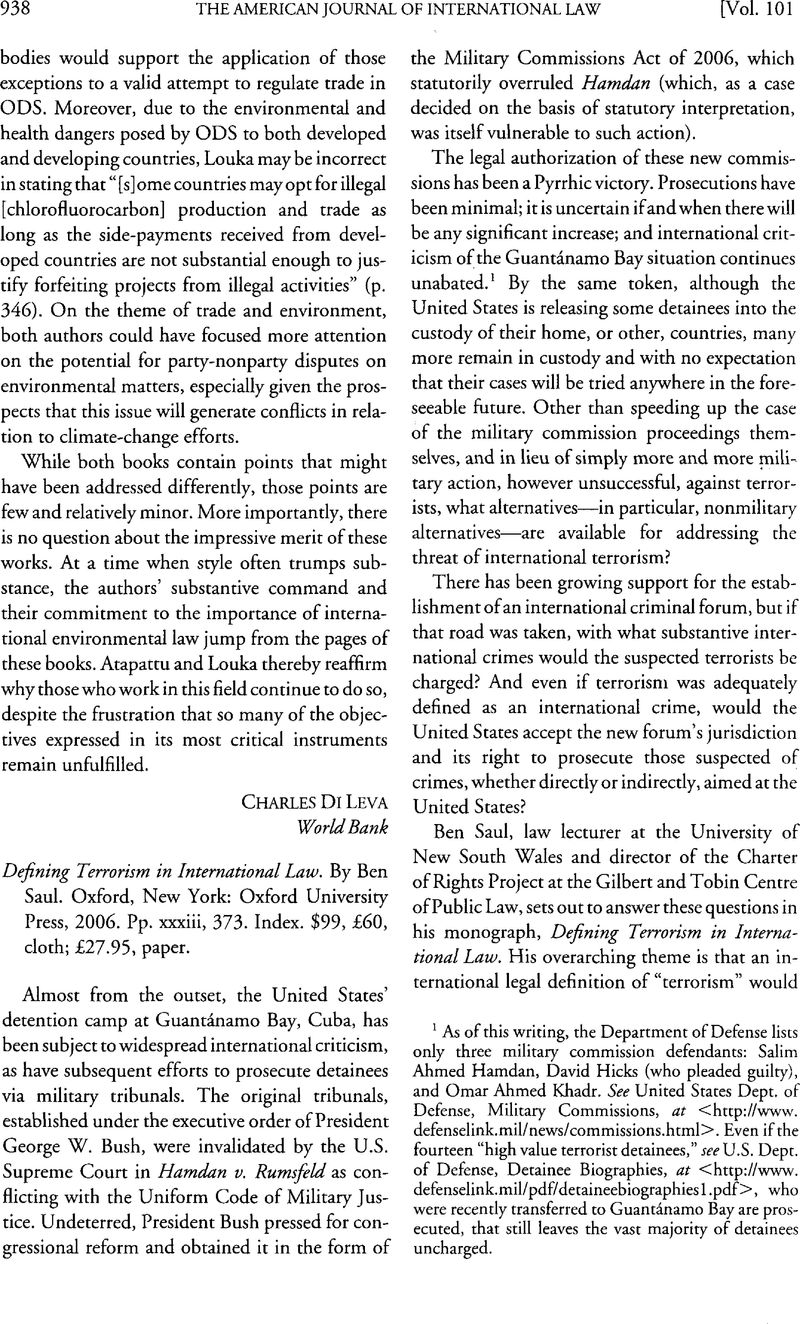No CrossRef data available.
Article contents
Defining Terrorism in International Law. By Ben Saul. Oxford, New York: Oxford University Press, 2006. Pp. xxxiii, 373. Index. $99, £60, cloth; £27.95, paper.
Published online by Cambridge University Press: 27 February 2017
Abstract

- Type
- Recent Books on International Law
- Information
- Copyright
- Copyright © American Society of International Law 2007
References
1 As of this writing, the Department of Defense lists only three military commission defendants: Salim Ahmed Hamdan, David Hicks (who pleaded guilty), and Omar Ahmed Khadr. See United States Dept. of Defense, Military Commissions, at <http://www.defenselink.mil/news/commissions.html>. Even if the fourteen “high value terrorist detainees,” see U.S. Dept. of Defense, Detainee Biographies, at <http://www.defenselink.mil/pdf/detaineebiographies1.pdf>, who were recently transferred to Guantánamo Bay are prosecuted, that still leaves the vast majority of detainees uncharged.
2 See, e.g., Execute bin Laden? Americans, Mexicans Say Yes; Other Countries No, Int’l Herald Trib., Apr. 26, 2007, available at <http://www.iht.com/articles/ap/2007/04/26/america/NA-GEN-Death-Penalty-AP-Poll.php>.
3 I do not mean to imply that the death penalty is normatively appropriate for bin Laden or others. Instead, I think it is likely that the U.S. government’s desire to seek the death penalty may arise as a significant obstacle to the use of an international criminal forum.
4 See supra note 1.
5 A July 2007 Department of Defense statement emphasized that “at least 30 former GTMO detainees have taken part in anti-coalition militant activities after leaving U.S. detention.” See U.S. Dept. of Defense, Former Guantanamo Detainees Who Have Returned to the Fight, July 12, 2007, at <http://www.defenselink.mil/news/d20070712formergtmo.pdf>>Google Scholar.
6 In return, of course, they must be treated as prisoners of war—a status that the United States has denied the Guantánamo Bay detainees. As a result, current objections to the U.S. detention policy should be parsed carefully as to whether they challenge the mere fact of detention or the conditions of detention.
7 Under U.S. domestic law, for example, a large majority of post-9/11 terrorism prosecutions have involved the federal laws prohibiting material support of terrorist organizations (18 U.S.C. §§2339A, 2339B). The expansive reach of these statutes has led to concerns, however, that they chill public expression.


